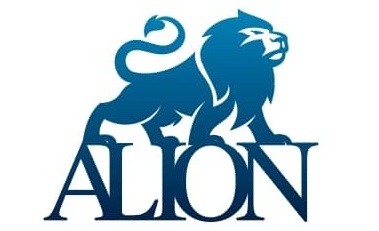INSTITUTE

MAIN PRIORITIES OF THE ALION INSTITUTE
Study and explore relationships between the animal and the human world
The Institute is established with the mission to enhance legislation about nature and animal welfare. Its objectives include educating the public on fostering a respectful attitude toward animals, organizing financial support for relevant organizations and individuals, and introducing innovative technologies to facilitate the remote adoption of animals.
The ALION Institute’s program is designed to ensure a sustained increase in financial resources. Its core activities focus on amending regulations, decisions, and laws that support animal welfare. Additionally, the program emphasizes the importance of development and research potential, aims to raise public awareness, and seeks to implement new academic and professional interconnection initiatives.
Human activity has increasingly posed a significant threat to nature, and by extension, to our well-being. This threat arises from pollution resulting from the production of plastics, chemicals, sewage, and gases, as well as natural events such as earthquakes. In our pursuit of economic advancement, we often overlook the crucial importance of environmental stewardship. A thorough analysis of historical influences on human consciousness enables us to better understand the intricate relationship between humans and animals, the spiritual implications of species extinction, and the factors contributing to the disconnect between humanity and the natural world.
To effectively safeguard the environment, protect animal species, and foster a respectful relationship with all living beings, it is essential to cultivate a deeper understanding and awareness of the interconnectedness of all life.
Through the examination and optimization of socio-economic relationships between humans and animals, the Institute is committed to advancing both economic and human development while preserving the environment and promoting biodiversity. Our primary focus rests on the health and well-being of animals, recognizing them as sentient beings with inherent needs. These needs demand our understanding, acceptance, and respect to cultivate a constructive attitude towards both animals and the ecosystems in which we coexist.

Source: Alion Institute. Storks in Slovenia
This initiative significantly mitigates the risk of transmitting microbial and viral diseases between animals and humans, thereby also reducing animal contagion. The Institute is committed to utilizing the latest scientific advancements to inform its standards, integrating contemporary insights and discoveries. It ensures the effective dissemination of methods aimed at preventing and controlling illnesses in animals and fosters collaboration among various stakeholders, which include:
- Organizations
- Educational institutions
- Kindergartens
- Youth clubs
- Corporations
- Individuals
The Institute actively organizes events in celebration of World Animal Day and participates in various projects related to animals and environmental conservation, such as the "Clean Slovenia" initiative.
Additionally, the Institute is committed to enhancing laws, regulations, and policies related to environmental protection and animal welfare. It collaborates with domestic and international organizations, institutions, and representatives to improve legislation, especially in jurisdictions where current frameworks inadequately address the management of animals in natural and domestic environments, zoos, public areas, and slaughterhouses. The overarching aim is to strengthen the legislative approach toward animals and the environment.
The Institute also provides financial support to selected organizations and individuals who are committed to environmental stewardship, the care of stray animals, or the protection of wildlife. This financial assistance encompasses the organization of conferences, workshops, awareness campaigns, and educational initiatives. Activities may include events, concerts, competitions for youth focusing on environmental and animal welfare issues, documentary programs about nature and animals, workshops for training responsible pet owners, campaigns promoting vaccination and rabies prevention, and media interviews designed to raise awareness about animals and the natural environment.
Moreover, the Institute is involved in a research and educational program that aims to rehabilitate marginalized individuals in collaboration with rehabilitated animals. This program is conducted at the GWARI Institute in Horjul, under the guidance of Dr. Prof. Vet. Alenka Dovc, with a significant focus on educational outreach and activities.
- Organizations
- Educational institutions
- Kindergartens
- Youth clubs
- Corporations
- Individuals
The Institute actively organizes events in celebration of World Animal Day and participates in various projects related to animals and environmental conservation, such as the "Clean Slovenia" initiative.
Additionally, the Institute is committed to enhancing laws, regulations, and policies related to environmental protection and animal welfare. It collaborates with domestic and international organizations, institutions, and representatives to improve legislation, especially in jurisdictions where current frameworks inadequately address the management of animals in natural and domestic environments, zoos, public areas, and slaughterhouses. The overarching aim is to strengthen the legislative approach toward animals and the environment.
The Institute also provides financial support to selected organizations and individuals who are committed to environmental stewardship, the care of stray animals, or the protection of wildlife. This financial assistance encompasses the organization of conferences, workshops, awareness campaigns, and educational initiatives. Activities may include events, concerts, competitions for youth focusing on environmental and animal welfare issues, documentary programs about nature and animals, workshops for training responsible pet owners, campaigns promoting vaccination and rabies prevention, and media interviews designed to raise awareness about animals and the natural environment.
Moreover, the Institute is involved in a research and educational program that aims to rehabilitate marginalized individuals in collaboration with rehabilitated animals. This program is conducted at the GWARI Institute in Horjul, under the guidance of Dr. Prof. Vet. Alenka Dovc, with a significant focus on educational outreach and activities.

